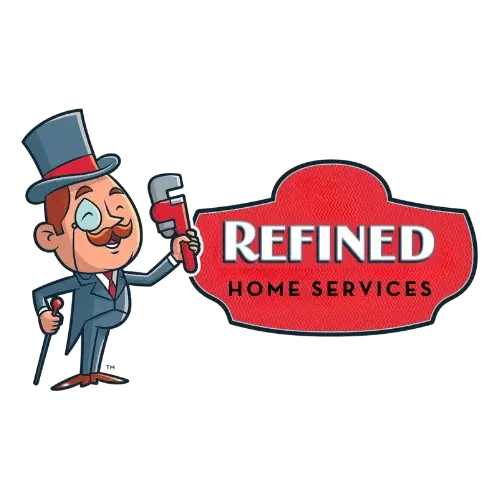Understanding Different Pipe Materials: Pros and Cons
Plumbing is an integral part of every home and building and responsible for carrying water in and waste out. While the intricate network of pipes may not be something we think about daily so the choice of pipe material can significantly impact a Sewer Rooter Service’s performance and longevity. In this comprehensive guide from Plumbing Services Downtown Toronto, we’ll delve into the various types of Plumbing Rooter Service used in plumbing systems and their characteristics, and the pros and cons of each.

Over the years, the evolution of plumbing pipe materials has been witnessed and with each material being offered unique advantages and disadvantages. The choice often depends on factors like cost, intended use, environmental concerns, and local building codes. So let’s explore the most common types of plumbing pipes and their key characteristics.
1. Copper Pipes
Pros:
- Durability: In harsh conditions, copper pipes can last for decades and are highly durable.
- Resistant to Corrosion: Copper is resistant to corrosion so ensuring that the water remains uncontaminated.
- Temperature Tolerance: The resistance to corrosion of copper ensures that the water remains uncontaminated.
- Recyclable: Copper is a recyclable material so making it an environmentally friendly choice.
Cons:
- Cost: Copper pipes are relatively expensive compared to other materials.
- Prone to Theft: Because of these scrap value, copper pipes are occasionally targeted by thieves.
2. PEX (Cross-Linked Polyethylene) Pipes
Pros:
- Flexibility: PEX pipes are highly flexible and can be bent around corners without the need for additional fittings.
- Resistance to Corrosion: PEX pipes are not susceptible to corrosion.
- Ease of Installation: They are relatively easy to install so reducing labor costs.
- Insulation: PEX has good insulation properties, which helps maintain water temperature.
Cons:
- Not Suitable for Outdoor Use: PEX pipes should not be exposed to sunlight for extended periods.
- Limited Lifespan: While durable, PEX pipes may not have the same long-term lifespan as copper.

3. PVC (Polyvinyl Chloride) Pipes
Pros:
- Affordability: PVC pipes are cost-effective and readily available.
- Lightweight: They are lightweight and easy to handle.
- Chemical Resistance: PVC is highly resistant to chemical corrosion.
- Low Maintenance: PVC pipes in Plumbing Rooter Service require minimal maintenance.
Cons:
- Not Suitable for Hot Water: PVC pipes are not recommended for hot water supply lines.
- Brittleness: They can become brittle over time, especially when exposed to extreme cold.
4. CPVC (Chlorinated Polyvinyl Chloride) Pipes
Pros:
- Hot Water Compatibility: CPVC pipes can handle hot water, making them suitable for both hot and cold water supply.
- Corrosion Resistance: They are resistant to corrosion, ensuring water quality.
- Affordability: CPVC pipes are relatively affordable.
Cons:
- Not Suitable for Outdoor Use: Like PVC pipes, CPVC is not recommended for outdoor exposure.
- Limited Lifespan: While durable, CPVC may have a shorter lifespan compared to some other materials.
5. Galvanized Steel Pipes
Pros:
- Strength: Galvanized steel pipes are strong and durable.
- Resistance to Rust: They are coated with zinc to resist rust and corrosion.
- Suitable for Outdoor Use: Galvanized pipes can withstand outdoor conditions.
Cons:
- Limited Lifespan: Over time, the zinc coating can deteriorate, leading to rust and reduced water quality.
- Heavy: Galvanized steel pipes are heavy and can be challenging to work with.
6. Cast Iron Pipes
Pros:
- Durability: Cast iron pipes are incredibly durable and can last for many years.
- Noise Reduction: They are known for their noise reduction properties, making them ideal for drainage systems.
- Fire Resistance: Cast iron is fire-resistant, which adds to its safety.
Cons:
- Weight: Cast iron pipes are heavy, making installation more labor-intensive.
- Cost: They can be expensive compared to some other materials.
- Susceptible to Rust: If not properly maintained, cast iron pipes can rust and corrode.
7. ABS (Acrylonitrile Butadiene Styrene) Pipes
Pros:
Durability: ABS pipes are durable and resistant to impact.
Chemical Resistance: They are impervious to a broad spectrum of chemicals.
Lightweight: ABS pipes are lightweight and easy to handle.
Cons:
Limited Heat Tolerance: ABS pipes are not suitable for hot water supply lines.
Not Environmentally Friendly: They are less environmentally friendly due to their non-recyclable nature.

Conclusion
The choice of Sewer Rooter Service material depends on a variety of factors, including the intended use, budget, local building codes, and personal preferences and each type of pipe material comes with its own set of advantages and disadvantages.
- For Durability and Longevity: Copper pipes are a reliable choice, especially for potable water lines.
- For Flexibility and Easy Installation: PEX pipes offer versatility and are well-suited for both residential and commercial applications.
- For Affordability and Chemical Resistance: PVC and CPVC pipes are cost-effective options, with CPVC suitable for hot water.
- For Strength and Rust Resistance: Galvanized steel pipes are a robust choice for outdoor and industrial applications.
- For Noise Reduction and Fire Resistance: Cast iron pipes excel in drainage systems and fire safety.
- For Impact Resistance: ABS pipes are durable and impact-resistant but are less suitable for hot water.
Ultimately, consulting with a Sewer Rooter Service professional and adhering to local building codes so it is crucial when deciding on the best pipe material for your specific needs but Understanding the pros and cons of each option empowers homeowners and builders to make informed choices, ensuring a reliable and efficient plumbing system for years to come.

